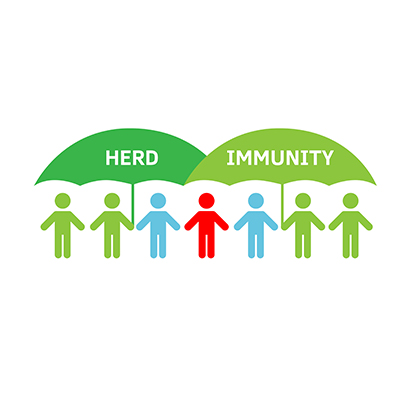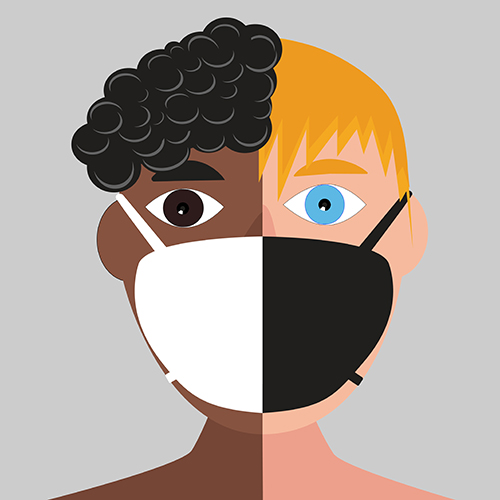
U.S. Pandemic--who should live, who should die?--epidemiologists vs economists
Posted on May 05, 2020
Of two minds—Who should live and who should die?
“The real reason epidemiologists and economists keep arguing”
Opinion, April 2, 2020 By Noah Feldman, Syndicated columnist
It’s not only factories that can’t retool overnight to meet the COVID-19 pandemic. Our brains can’t, either. The way we think and the things we think about follow patterns that are capable of evolution and change — just not that fast.
You can see this phenomenon all around you right now: whatever we cared about before, we’re now using as our lens to think about the novel coronavirus. And subject matter experts, the people we need most in a crisis, are also the most likely to keep thinking as they have, because their thinking is so strongly shaped (or deformed) by professional training and strong collective values.
 I could give you lots of examples. If you usually think about workplace diversity, now you’re likely to be focused on the disparate impacts of the virus on workers based on sex, race and class. If you’re focused on reforming incarceration, you’re probably among those warning of the pandemic’s impact on the prison population.
I could give you lots of examples. If you usually think about workplace diversity, now you’re likely to be focused on the disparate impacts of the virus on workers based on sex, race and class. If you’re focused on reforming incarceration, you’re probably among those warning of the pandemic’s impact on the prison population.
But perhaps the most important two examples of experts following their training and beliefs are the two disciplines whose knowledge is most central to the current crisis: epidemiologists and economists.
Their intellectual approaches have a lot in common. Yet the difference between their approaches is already shaping government responses to the pandemic.
And what began as a difference of emphasis has the potential to become a chasm as the public health catastrophe continues and the ensuing economic crisis deepens.
To oversimplify, think of epidemiologists as experts who have spent their entire careers preparing to understand and suppress rapidly spreading disease. Their distinctive intellectual bent is to build models of transmission and then develop real-world interventions to change the expected outcome. Their core value is preserving public health.
Flatten the curve” is a perfect example of the epidemiological worldview. Early models of transmission showed a steep infection curve. Social distancing is an intervention aimed at elongating that curve so that hospitals aren’t overwhelmed, and deaths are reduced.
Now think of economists, or to be more precise, macroeconomists. They, too, have models — theirs are supposed to predict how the economy works. And they, too, are focused on interventions with the potential to improve outcomes.
But that’s where the similarity ends. Unlike epidemiologists, who identify a biological enemy and try to defeat it without thinking much about the costs, economists live on trade-offs. It’s an article of faith for economists that there is no such thing as an absolute value — not even the value of human life.
Instead, most economists embrace the hardheaded reality that helping one person often leaves another less well-off. When it comes to taking health-related policy measures, economists delight in pointing out that we are implicitly or explicitly putting a measurable economic value on human life. If we lowered the speed limit to five miles per hour, there would be almost no traffic deaths, they like to remind us. The 55 miles per hour speed limit puts a price on human life, whether we like it or not.
What’s more, macroeconomists have typically spent their careers preparing to understand and respond to crises in the economy. They are acutely attuned to the grave dangers associated with an economy grinding to a halt. When they see governments taking measures that will have precisely that effect, they’re preconditioned to respond with horror and to advise a different course of action.
The upshot of these different worldviews is that, on the whole, epidemiologists are insisting that we must take all necessary steps to control the spread of COVID-19. Meanwhile, many economists are saying that we must find a way to reopen the economy and that we must explicitly weigh the trade-off between virus-related health and broader human well-being that is in part a product of a functioning economy. (Of course, not all epidemiologists and economists fit neatly into these two boxes; I am offering a heuristic device to make sense of different approaches, not a sociological study.)
The gulf between the worldviews is big — and it’s growing.
When epidemiologists say that there is no trade-off to be had between health and the economy, because if people keep getting sick and dying it will leave the economy worse off, lots of economists just shake their heads. “There is always a trade-off,” you can hear them thinking. The consequences are measurable. People dying is unfortunate, but it’s still a cost that can be compared to the costs of shutdown.
Meanwhile, when the economists talk the trade-off talk, lots of epidemiologists (and others) find it morally reprehensible when people are dying.
The conflict between these two approaches is going to come to a head if and when the rate of new infections and deaths in the United States starts to go down as a result of social isolation. That’s when economists will say it’s time to start getting people back to work. And it’s when epidemiologists will say we are courting the disaster of a recurring outbreak.
In the meantime, the best we can do is be self-aware of our own intellectual tendencies.
Noah Feldman is a Bloomberg View columnist. He is a professor of constitutional and international
law at Harvard University and was a clerk to U.S. Supreme Court Justice David Souter.
Seattle Times, Opinion, April 5, 2020.
Plus: (Seattle Times: April 24, 2020) “Trump, in a hurry to restart the economy in an election year, has appointed a panel of business executives to chart a course out of the lockdown.”
Addendum: Seattle Times: 5/6/20, Governor Inselee sued by 4 GOP lawmakers over "his stay-home order aimed at slowing the spread of the caronavirus".
As of Tuesday (May 5, 20), "the state has had 15,594 confirmed cases of cronavirus with 862 deaths, according to the state health department. Of those who have died, more than 90% were 60 years or older.
+------------------------------------------------------------------------------------------+
Webmaster note: The following is presented as a good example of the philosophical conflict between the epidemiologists and economists.
+------------------------------------------------------------------------------------------+
"Coronavirus testing can 'contain the virus,' save many lives, and help reopen the economy," said Fintan O’Toole.
"But President Trump revealed last week why he refuses to lead a massive testing program like the ones that have succeeded in driving down the number of cases and deaths in their countries. 'By doing all this testing,' Trump said, 'we make ourselves look bad.' The U.S. still has done far less testing per capita than 25 other countries, but Trump doesn’t like what testing has revealed—'a country with 5 percent of the global population having a third of the world’s known cases of Covid-19.'
"He thinks testing produces a score, like the stock market or TV ratings. Rational people know the goal of testing is to produce an objective truth” about the prevalence of the virus in a given city or state, so wise policy decisions can be made.
"But Trump doesn’t believe in objective truth. He believes in perceptions, 90,000 dead Americans notwithstanding. 'If we didn’t do any testing,' he complained, 'we would have very few cases.'
"If tests are going to find infected people, why do more of them?"
This item was quoted in THE WEEK, May, 29, 2020, Titled “Why Trump hates testing for
the virus” was written by Fintan O’Toole, for the Washington Post.
SEE ALSO:
More Mental Health Articles
Sexual Bias Articles
Race Relations Articles
How Drugs and Alcohol Affect the Brain and Body
WA. Counselor Directory: find a therapist near you
How helpful is this web page to you?
(and how can we can improve this page for you?)
not helpful
very helpful
Other Articles
Do you have an absolute right NOT to wear a mask when ordered?
Of masks and rights
“My body, my choice!” A refrain from the abortion-rights movement is now the battle cry of those insisting there’s a right against wearing masks or being vaccinated during a pandemic.... read more
Misinformation on coronavirus is proving highly contagious
PROVIDENCE, R.I. (AP) — As the world races to find a vaccine and a treatment for COVID-19, there is seemingly no antidote in sight for the burgeoning outbreak of coronavirus conspiracy theories, hoaxes... read more
What is Herd Immunity?
How Will We Achieve It?
“Herd immunity occurs when enough people become immune to a disease to make its spread unlikely." The elimination of the weak--achieved by the death the elderly and others who have compromised imm... read more
Racial Inequity of Coronavirus
Teresa and Marvin Bradley can’t say for sure how they got the coronavirus. Maybe Ms. Bradley, a Michigan nurse, brought it from her hospital. Maybe it came from a visiting relative. Maybe it was someth... read more




